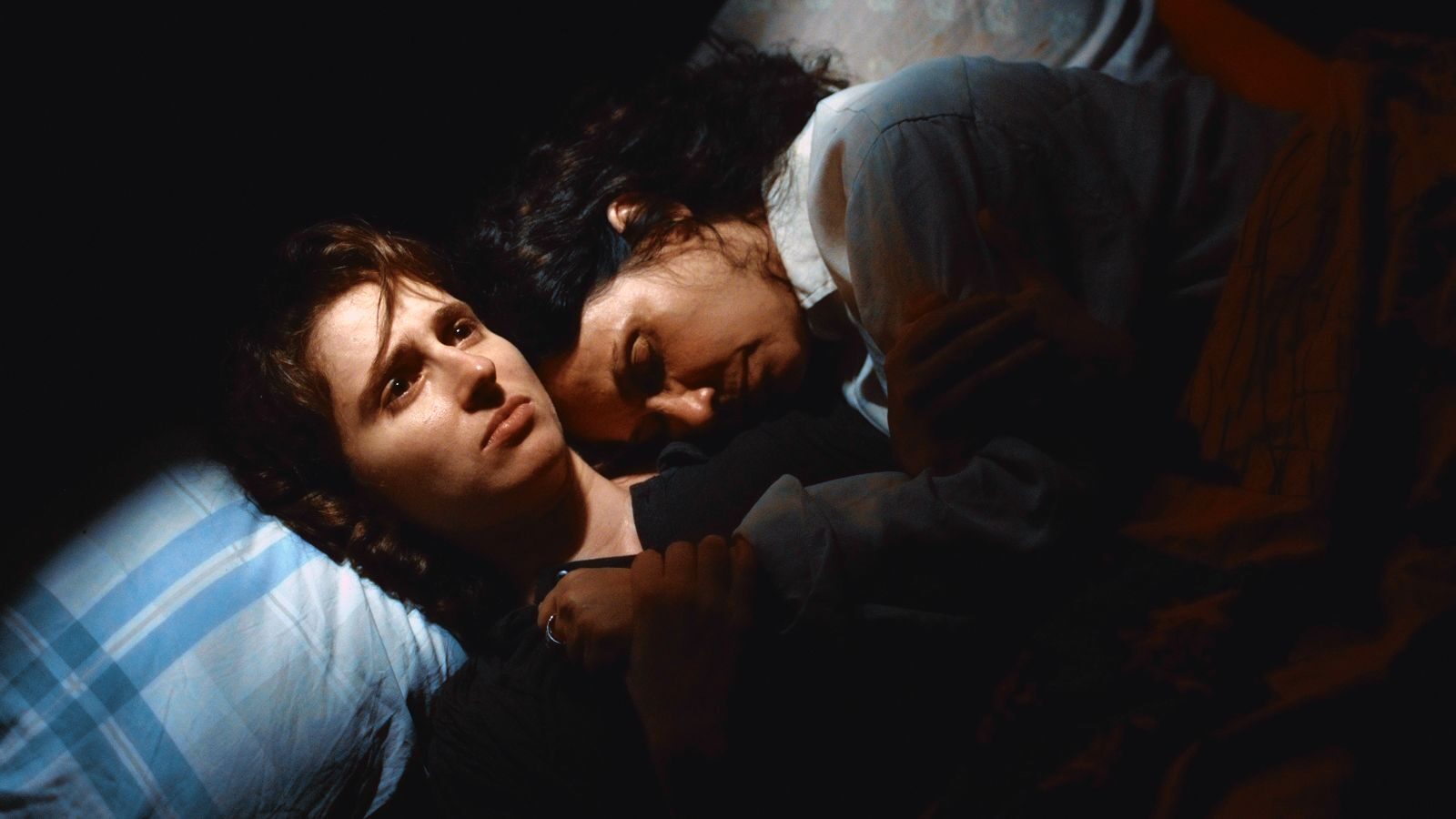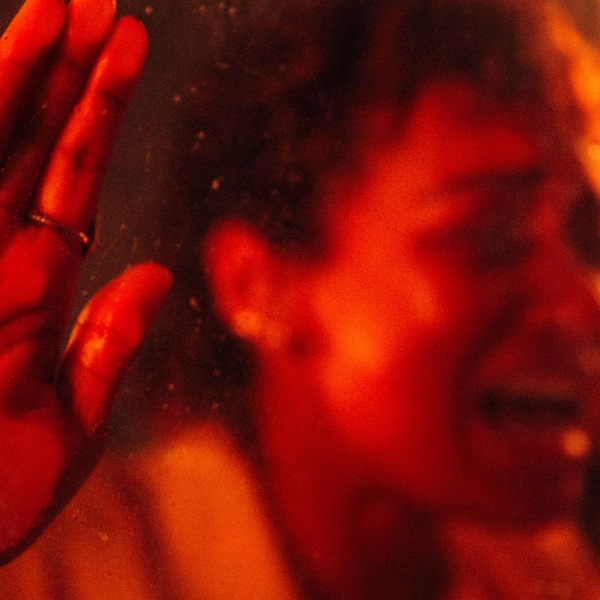
Like so many daughters throughout history, especially the ones that still live at home, Malu Rocha (Yara de Novaes) exists in a state of constant rebellion against her mother. A volatile, weed-loving, Rio-born actress who dreams of turning the family house into a community theater for the kids who live in the local favela, Malu relishes every opportunity to cause a scene in her own living room, even — or especially — if that opportunity comes at the expense of good taste.
When she comes home one day to find her mom, Lili (Juliana Carneiro da Cunha), sharing a cup of tea with a mild-mannered priest, Malu begins lecturing the guest about how Jesus Christ was a communist who “started a religion full of pedophiles.” Lili tries to excuse this behavior by insisting that her daughter is a drug addict, but that isn’t enough to stop the priest from making a hasty exit stage right. As soon as he’s gone, the two women physically attack each other with a ferocity that would be a lot more frightening if not for the scene’s tragicomic sense of disbelief. If not for the fact that Malu is a perma-stoned fiftysomething, or that her elderly mother wins their fight by clawing a cartoon-like wolverine gash in her daughter’s cheek.
That minor scrape will clear up in a day or two, but it’s safe to assume that many of the other, deeper wounds these women have inflicted upon each other over the years have yet to heal. It’s also safe to assume that the fittingly raw and eruptive ’90s-set drama Pedro Freire has constructed around them — as inspired by Cassavetes as it was by the director’s own mother — doesn’t build to a sweet moment of intergenerational catharsis in which mother and daughter find the grace to completely forgive each other their trespasses.
“Malu” isn’t that kind of movie. It cuts too deep to scab over in less than 100 minutes. Its family tree is poisoned to its roots. The best these characters can hope for is a glimmer of mutual recognition in the face of their hereditary madness; a shared understanding that parents need to take care of their children in order for children to learn how to take care of their parents. And it’s only because Freire’s hyper-combustible debut feature remains so true to itself that we believe Malu and Lili might find what they’re looking for, even if it ultimately doesn’t look anything like what we expected them to find.

In order to do that, however, Malu and Lili are going to need a little help. Enter: Joana (Carol Duarte), Malu’sdaughter, whose nascent success as a TV actress triggers her fading mother’s Norma Desmond era the minute she returns to Rio. A level-headed, gender-swapped avatar for Freire himself, Joana watches with loving awe — and exasperated dread — as her mom dances along the knife’s edge of a mental breakdown.
Malu’s bohemian dream of opening the Malu Rocha Cultural Center might be a bit less far-fetched than it seems (Malu’s charisma is magnetic enough to excite a makeshift community into action), but it’s unclear if the neighborhood theater is ever going to host a legitimate show, or if it’s just a stage for Malu to get drunk with the locals and regale them with the same old stories about her glory days as a hot young starlet in São Paulo (she obliviates her ex-husband by insisting that he was just “a supporting actor”). Some people can only be themselves when they have a proper audience; Malu won’t get out of bed without giving the performance of a lifetime.
Hypnotized by how Malu holds a spotlight, Joana’s friends naturally think her mom is the coolest woman in the world, but that’s only because they don’t know what she’s like as a scene partner. They don’t know how much Malu resented Joana for the time and attention that she took from her mom as a child, and has since repackaged that resentment into accusations of generational materialism in order to mask her own selfishness. They don’t know the horrible things that Malu accuses Joana of when the mood shifts late at night, just as Malu doesn’t know about the unspeakable abuse that Lili survived as a child — how it corrupted her ability to love, and warped her faith into a weapon capable of paying that pain forward. These beautiful women want to love each other so badly, but they need to use each other as receptacles for all of the ugliness they’ve inherited along the way.
Unfair as her burden might be, Joana is the only member of the family who’s in a position to reverse the flow of that anger and resentment, a task that she latently takes on against the backdrop of the unbridled chaos that Malu invites into her home. That chaos would be easier for her to sort through if it weren’t so thoroughly textured with joy, much of which stems from Tibira (Átila Bee), the loud and proud Black gay thespian who lives on the property despite Lili’s religiously motivated attempts to kill him.
Tibira brings the color and glitter of Carnivalwith him wherever he goes, and his energy helps to destabilize the sort of hard dramatic lines that would otherwise threaten to make the film’s drama feel oppressively heavy, and its shouting matches histrionic. The freewheeling shape of Freire’s script belies the tightness of its construction, just as the unpredictable expressions of Malu’s blossoming madness belie how clearly they all stem back to the soil, like the suffering bromeliads that grow in Lili’s garden. De Novaes’ lightning bolt of a performance is supercharged by her character’s errant flashes of recognition, which cut across the screen that much stronger as Malu’s condition grows darker around them.
And wow does it grow dark, eventually pushing toward a diagnosis that rings true at the same time as it defies belief, and tees up a haunting final scene that solders this story closed with a scream of hot fire instead of a warm hug (I’m trying to avoid the word “Lynchian” wherever possible, but the last shot of this movie is all the more powerful for how unexpectedly it earns that description). And yet, when “Malu” reveals its autobiographical nature with the closing title card in which Freire dedicates this tempestuous film to its mother, his debut still feels more like a sincere offering than it does a backhanded tribute.
It’s only because of this movie’s naked honesty and the unsparing gravity of its supernova lead performance that Freire is able to afford his mother the star vehicle she was never given the chance to act in, nor will ever get the chance to see. And he affords Malu the ability to share that same gift with Lili in turn, even if only in absentia. “I will never allow your evil to kill my poetry,” Tibira tells Lili after she poisons him, but “Malu” finds a mote of vengeance for all of its characters who lost their own version of that fight, just as it finds an immaculate strength in the ones who went down swinging. This hectic cataclysm of a movie is nothing less than an act of forgiveness — a forgiveness that can be remembered as its own form of love.
Grade: B+
“Malu” screened at New Directors/New Films 2024.It is currently seeking U.S. distribution.







